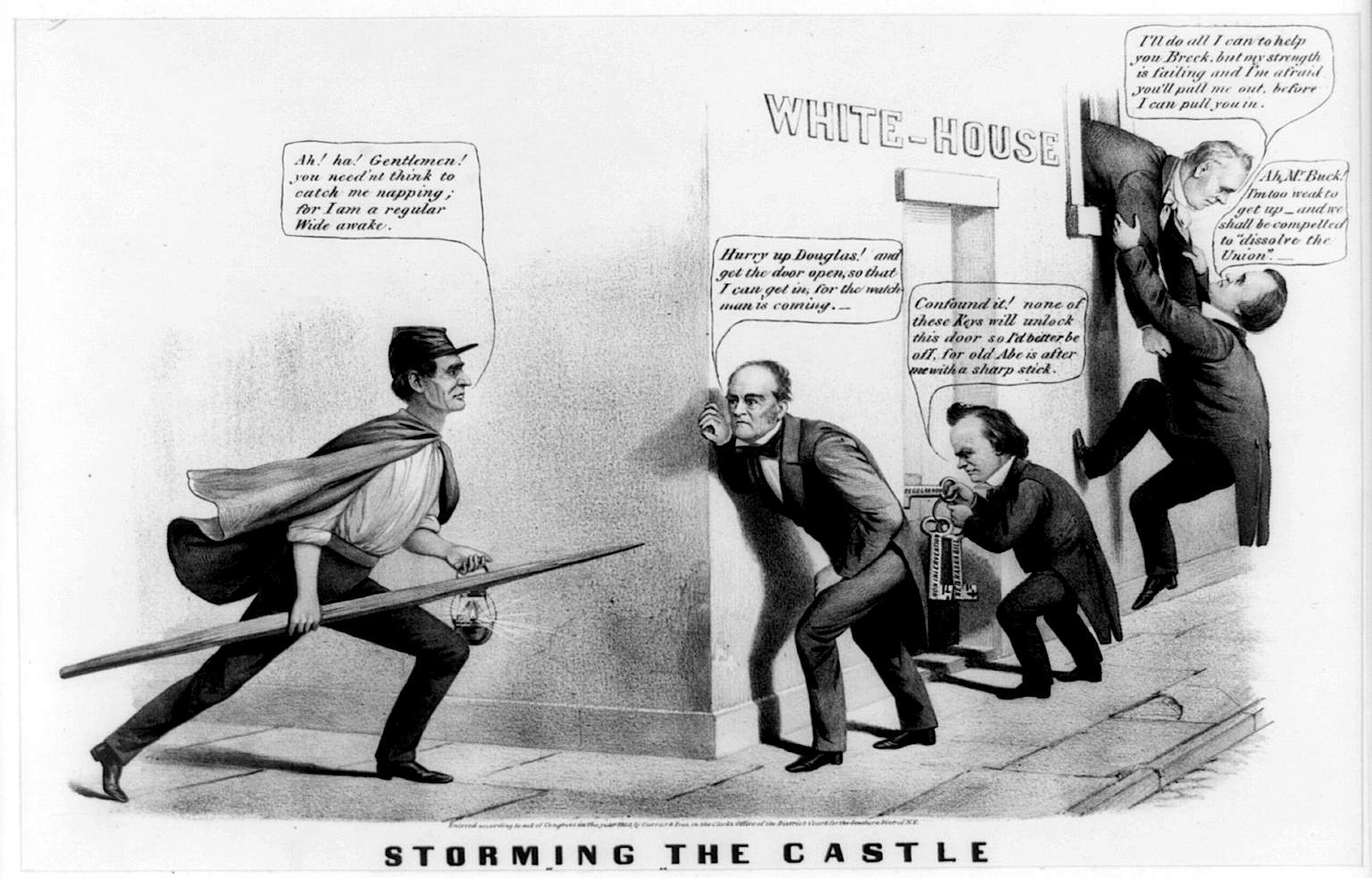As it is today, Lancaster County during the Civil War stood out as one of Pennsylvania's most reliably Republican counties. While the city leaned toward the Democratic Party, there really wasn't much of a contest in the rest of the county. The 79th Pennsylvania generally represented the politics of community from which it was recruited, with some of the older officers as lifelong Democrats and the younger officers as staunch Republicans.
In my post about S. H. Zahm's anti-Southern patriotic covers, I mentioned how trying to understand boiling Northern antipathy toward the South is interesting but not necessarily obvious. A corollary to that is understanding how the Republican Party came out of nowhere, only being founded in the mid-1850s but winning the presidency with the election of Abraham Lincoln just a few years later in 1860. Lancaster County, formerly of stronghold of the defunct Whig Party, quickly rallied to the Republican cause, and several Republican newspapers including the Daily Evening Express loudly voiced support for the Republican Party.
 |
| Political cartoon featuring the main players in the election of 1860, with Abraham Lincoln on left. By Currier & Ives [Public domain], via Wikimedia Commons |
The Republican party of the 1850s was a coalition opposed to “slavery” in its many forms, but primarily in the form of a “slave power”: that is, a political and economic movement designed to dominate the federal government in the interests of slavery, casting aside the interests of white northerners. Sure, many Republican leaders (including Lincoln) thought slavery was evil and immoral, but they gained support from voters when they identified northern Democrats as the puppets of that slave power and argued that only Republicans served northern interests. Democrats like Stephen Douglas found it impossible to retain southern support while appealing to northern voters (which is one reason why Douglas played the race card all the time … because he knew that many northern voters harbored deep racial prejudices, especially among Democrats).Topics for further research: Reaction in Lancaster to the Fugitive Slave Act and the Christiana Riots, Reaction to John Brown's raid on Harpers Ferry, Involvement of future 79th Pennsylvania officers in rallies leading up to the election of 1860, the Wide Awake movement in Lancaster.


No comments:
Post a Comment